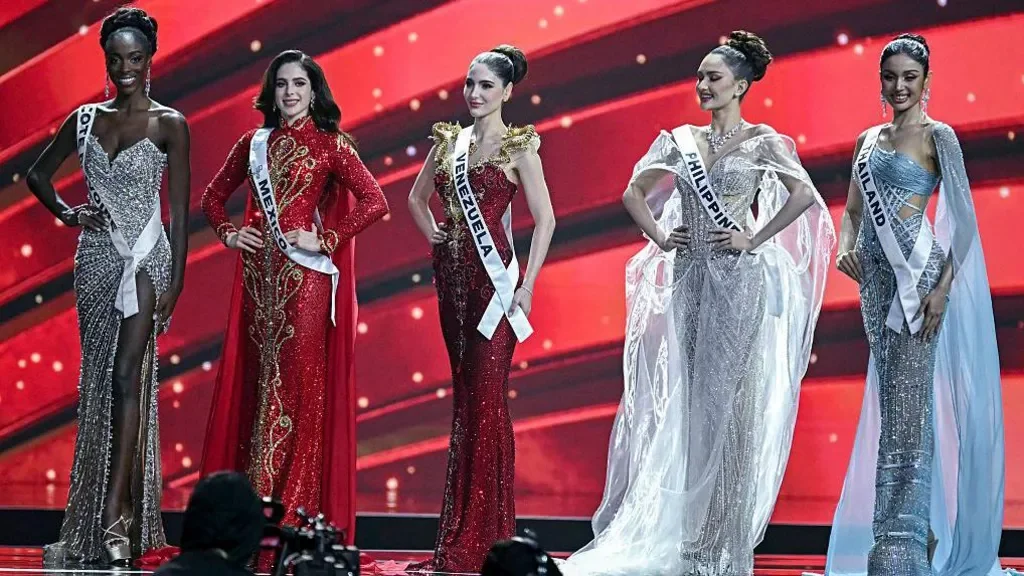She’s beauty, she’s grace — she’s Miss Universe 2025.
Photo Source: Getty Images
Miss Universe is one of the world’s most renowned and influential beauty pageants, celebrated not only for its glamour but for its commitment to promoting women’s empowerment, intelligence, cultural representation, and confidence on a global stage.
Beyond the crown, the titleholder often becomes a prominent public figure in her home country and internationally, using her platform to advocate for social causes, participate in humanitarian work, and partner with leading brands, nonprofits, and global organizations. In many cases, winners are known as “humanitarians” for the large-scale community impact they create during and after their reign.
This year’s competition, however, unfolded amid significant controversy, much of it centered around Miss Mexico, Fatima Bosch Fernandez, whose journey captured worldwide attention.
Tensions escalated when a Philippines pageant official and pageant executive, Nawat Itsaragarisi, publicly berated Fatima, calling her a “dumbhead” after she declined to participate in a sponsored social media post he claimed was mandatory for all contestants. The confrontation grew so hostile that Fatima had to be escorted by security personnel. In a rare show of solidarity, several contestants and national directors walked out in protest, standing with Fatima against what they viewed as mistreatment and unprofessional conduct.
Fatima’s background further distinguishes her from many of her peers. Prior to entering Miss Universe, she was deeply involved in humanitarian efforts, particularly cancer awareness initiatives. At just 25 years old, she had already earned a degree in fashion and had built a reputation for her compassion, advocacy, and dedication to meaningful causes. Alongside Mexico, this year’s top five contestants included Côte d'Ivoire, Venezuela, the Philippines, and Thailand—each bringing exceptional poise, talent, and purpose-driven work to the competition.
As the controversy grew, two pageant officials resigned, alleging that the competition had become biased and even “rigged.” These claims remain unsubstantiated, but the discourse surrounding them amplified global discussions about fairness, transparency, and the treatment of contestants within the pageant system.
Fatima’s victory, despite the challenges she faced, speaks to a broader cultural narrative: women are often criticized, dismissed, or ostracized simply for defending themselves when treated unfairly. Her composure, resilience, and refusal to stay silent in the face of disrespect resonated with viewers around the world. Her win sends a powerful message—that women can hold their ground, advocate for themselves, and remain true to their values without compromising their dignity or authenticity.
While beauty pageants have long been questioned for perpetuating narrow beauty standards and contributing to the sexualization of women, Fatima’s journey represents a meaningful shift. She redefines what it means to be a contestant by prioritizing integrity, compassion, and courage over compliance. Her story underscores a new era for pageantry, one where advocacy, empowerment, and purpose matter just as much as appearance, if not more.

